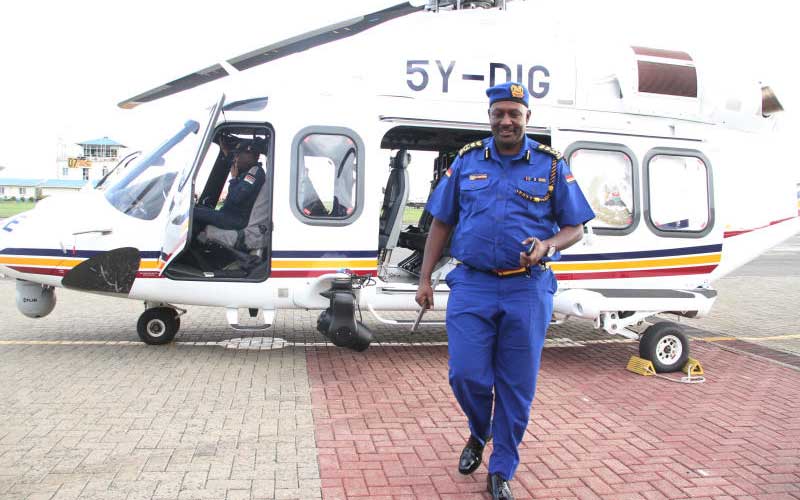×
The Standard e-Paper
Join Thousands Daily

Inspector General of Police Hilary Mutyambai disembarks from a new police helicopter at Wilson Airport in May 2019. Plans are under way to put all police aircraft under the Kenya Air Force. [File, Standard]
Plans are at an advanced stage to hand over the management of State-owned aircraft to Kenya Air Force in the latest move to involve the military in civilian affairs.